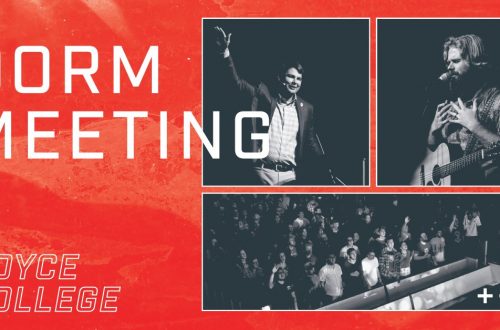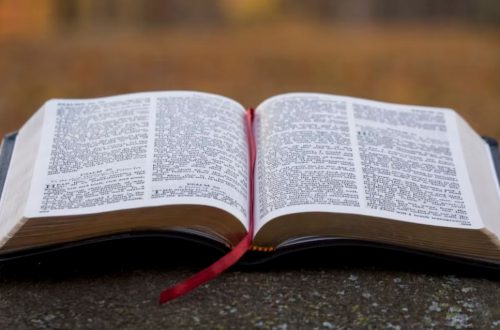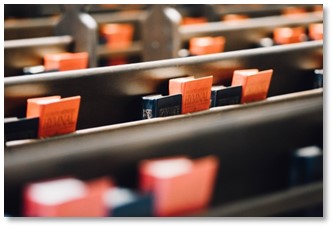 Albert Mohler has offered a brief, critical response to Pope Francis’s recent papal encyclical “Laudato Si.” Mohler reminds readers that evangelicals “reject the very idea of the papacy.” Having said that, he also points out that media coverage has focused almost entirely on how the letter reinforces a certain narrative about climate change without giving much attention to what it says about the Roman Catholic Church’s teaching on sexuality.
Albert Mohler has offered a brief, critical response to Pope Francis’s recent papal encyclical “Laudato Si.” Mohler reminds readers that evangelicals “reject the very idea of the papacy.” Having said that, he also points out that media coverage has focused almost entirely on how the letter reinforces a certain narrative about climate change without giving much attention to what it says about the Roman Catholic Church’s teaching on sexuality.
To wit, section 155 of the Pope’s letter reads as if it were written as a direct contradiction to fashionable transgender propaganda, which has become so ubiquitous in recent days. Here’s what the Pope writes:
Human ecology also implies another profound reality: the relationship between human life and the moral law, which is inscribed in our nature and is necessary for the creation of a more dignified environment. Pope Benedict XVI spoke of an “ecology of man”, based on the fact that “man too has a nature that he must respect and that he cannot manipulate at will“. It is enough to recognize that our body itself establishes us in a direct relationship with the environment and with other living beings. The acceptance of our bodies as God’s gift is vital for welcoming and accepting the entire world as a gift from the Father and our common home, whereas thinking that we enjoy absolute power over our own bodies turns, often subtly, into thinking that we enjoy absolute power over creation. Learning to accept our body, to care for it and to respect its fullest meaning, is an essential element of any genuine human ecology. Also, valuing one’s own body in its femininity or masculinity is necessary if I am going to be able to recognize myself in an encounter with someone who is different. In this way we can joyfully accept the specific gifts of another man or woman, the work of God the Creator, and find mutual enrichment. It is not a healthy attitude which would seek “to cancel out sexual difference because it no longer knows how to confront it”. [underline mine]
Bottom line: The Pope says that we cannot choose our nature. We recognize what God made us to be, either male or female. This implies that attempts to “cancel out sexual difference” through surgical mutilations go against nature and are immoral. Male and female bodies reveal something sacred and immutable about God’s intention for us. Our gender identity, therefore, is not infinitely malleable as the queer theorists and transgender propagandists would have us believe.
Like I said, this is out of step with the spirit of the age, and we likely won’t hear much about it in the press coverage. The entire letter is a long read—nearly 38,000 words or 65 pages single-spaced. If you want to try and read the whole thing, it’s here.




14 Comments
James Stanton
I think the controversy behind the Pope’s outspokenness on political issues makes it clear that most Catholics are “cafeteria Catholics”. The liberal Catholics tend to ignore the church’s teachings on abortion or gay marriage and the conservative ones would probably ignore the church’s positions on the death penalty or climate change.
There isn’t as much furor over the comments on gender because the media has decided issues of gender or orientation are not really debatable outside of the fringes of society. The media can better sensationalize the idea of a schism in the Catholic Church over the Pope’s more liberal positions.
Christiane Smith
Hi JAMES,
however, when you read ‘Laudato Si’, it does not present as a letter ‘on political issues’, but as a call to know Our Creator more fully through our compassionate care for His Creation and for His creatures who now ALL face environmental changes that will first impact those least able to survive
. . . Catholics, even the more conservative ones among us, will recognize the immense importance of this appeal to our solidarity with Christ’s poor. We have been called in conscience to accept our Christian responsibilities to the common good. If that is ‘political’, then I am wrong. But I don’t think this encyclical is so shallow as to be limited to the description of ‘speaking out on a political issue’, not in the context of the whole letter, no. That is why people on the left and the right are taking notice: the scope of the encyclical is both much wider and much deeper than the world of human politics can manipulate or control, either towards the right or the left.
It’s a letter, sent round to be read, and discussed, and everyone is invited to enter into that discussion . . . it concerns us all.
James Stanton
Christiane,
I’m sure you’re right but I’m responding to it as a non-Catholic. Social conservatives are far from independent from the narratives that drive movement conservatism in this country. You already see right-wing political figures slander the Pope as a communist. The focus on alleviating poverty or environmental conservation will collide with structural obstacles because these are now seen as left-wing issues.
Christiane Smith
Hi JAMES,
thank you for responding . . . I think the Pope is probably very aware of all things now affecting those who live along the margins and who are suffering. He IS, as a Catholic leader, calling on the people of our Church, but he is also appealing to all Christian people and all people of conscience for the sake of those who are most vulnerable . . .
He is not going to allow anyone to take on the ancient Christian work of helping the poor and disabled, the orphans and the widows, and re-define this work as a ‘left-wing, communist’ issue . . . and that is WHY this encyclical concerns many on the right who want it to be seen only in the way they have framed it.
For Christians who are non-Catholics, I happen to know that there is much concern for the poor . . . the generosity and care given by non-Catholic Christians to those who are in need cannot be discounted, but must be credited not against their ‘right-wing’ values, but instead credited to their love of Jesus Christ for Whom the poor most especially are beloved. So, on THAT note, the Pope does have a point, that the harm being done now to our common home, the Earth, is going to affect the most vulnerable among us FIRST . . . and we, as a Christian people, (the WHOLE Church) have an obligation in the Name of Our Lord to care for the vulnerable and not to abandon them to perish, while we are still able to care for our own needs, and we are still able to make changes that will ensure the survival of our most vulnerable brothers and sisters. Francis appeals to us in the Name of Christ and many of us can no longer ignore the ‘cry of the poor’ and ‘the cry of the Earth’, which now have merged in the severity of climate change conditions.
‘Left’ and ‘Right’, ‘conservative’ and ‘liberal’, Catholic or non-Catholic . . . when it comes down to the issue of the survival of our planet, those labels fade and we are forced to address the ‘common good’. It’s about time we did. It is a moral issue, not a political one anymore. Let the discussion be held. And let’s listen to each other in earnest because ‘we’, ‘we living beings’, are the ones who need to act before this starts to come down on the vulnerable and eventually on all of us and our children . . . some thoughts, thanks for communicating with me 🙂
Chris Ryan
Hi, Christiane. I have a question. How does Catholic doctrine differentiate medical interventions like chemo-therapy and appendectomies from other health care interventions like In Vitro Fertilization and other reproductive health procedures? I don’t get why the former type of intervention is considered good whereas the latter is considered sinful. I’m not sure if you share the rationale or not, but I’d be interested in how the rationale is promoted.
Christiane Smith
Hi CHRIS RYAN,
I do know that the Church approves of all interventions that will save a life. In vitro fertilization (I had to look it up) there are concerns for the embryos, here is a document that explains it well:
http://www.vatican.va/roman_curia/congregations/cfaith/documents/rc_con_cfaith_doc_20081208_dignitas-personae_en.html
there are other related documents that help and they are referenced in ‘Dignitas Personae’, so if you have some time, there is a lot of detailed and documented reading that can answer to your concern on the vatican websites . . .
It’s heart-breaking for couples who want a child, and in vitro seems like a valid option, but I think the Church sees some danger in the possible mis-use of ‘test-tube’ embryos in how they are treated if they are not implanted, and if they are used by unprincipled people in certain kinds of genetic ‘experiments’ which are morally unacceptable
There is so much more to know. . . but this will get you started . . . and when you hear terms like ‘the moral law’, ‘the natural law’, look them up in New Advent or Catholic Encyclopedia as such terms may not mean the same thing in the evangelical world.
Great questions. Wish I was more knowledgable, CHRIS.
Chris Ryan
Thanks so much, Christiane. Hope you’re having a wonderful weekend.
Travis Henderson
Evangelicals are opportunists if nothing else. Here we see the Pope–who many evangelicals don’t even consider to be Christian–being roped in as a convenient ally in their dogged persecution of LGBT people.
Ian Shaw
Paint with broad strokes much? Nice.
Denny’s point is that clearly, the media and left clearly are only reporting on the climate change portion of the pope’s narrative. There’s been nothing, and I mean nothing in the mainstream media about the pope’s portion on “human ecology” as he puts it.
Travis Henderson
And you’re not painting with broad strokes yourself when you refer to “the media and the left”?
Ian Shaw
I don’t refer to people I disagree with using labels, but this was a mere experiment to prove that you can dish it out but can’t handle it coming back your way.
Denny made a point regarding the lack of any attention to another portion of the pope’s narrative. Instead of discussing the lack of attention/omission, you decided to throw pot shots. Not exactly dialogue friendly eh?
Travis Henderson
What, exactly, is coming back my way? Nothing of substance.
Gus Nelson
Yes, some evangelicals will tell you no Catholics are Christians while others will say it depends. Moreover, Muslims also see LGBT people as engaged in sin, yet I don’t see Denny “roping” them in as “convenient” allies. Catholics and evangelicals share many points of agreement, and are often willing allies in those areas while nonetheless recognizing their sometimes serious differences. It’s hardly an indictment of evangelical views to claim other people agree with them. Environmentalists and LGBT may overlap on some issues and not others. Would it be “opportunism” for these two groups to acknowledge those areas where they agree?
Christiane Smith
Hi DENNY,
I’ve been thinking about the issue of your post here, and it occurred to me that there may be some variance in how faith communities interpret ‘human’ . . . when in my Church we say ‘man’, it often means ‘human’ . . . male and female . . . and references our common humanity and our common dignity as persons made in the image of God
so, in that light, Pope Francis’ words make more sense, especially when you see him in action in the Church, where he is more of a servant to our fallen brothers (and sisters) than he is one who seems ready to ‘cast them out’ as some in the Church have been . . .
I don’t know from ‘ popular transgender propaganda’, no. But I am conscious of people’s discomfort with those who are ‘different’ and that often, not knowing how to ‘fix it’ for them, or ‘make it right’ for them, how it is that we seem too eager to distance ourselves from them in ways that are not Our Lord’s Ways.
I think the Pope gets it right that what there is that makes us ‘human’ is something even more basic than our ‘maleness’ or ‘femaleness’ . . . and that IS a difference that invites us to engage with people who have gender issues on more common ground: our common human origin . . . the very soil from which we were formed and the very life breathed into us.
maybe it’s a question of perception, but I detect a variance in how some perceive ‘human’, ‘male’, and ‘female’ as defined in terminology and then applied to the moral law . . . the Catholic concept of ‘the moral law’ and the ‘natural law’ may not be the same as the concept of other faith communities . . . and the evidence of this IS that some in the Church are wanting to surround and care for the fallen patiently over time with gentle care and unremitting hope for their salvation,
whereas others seem impatient in how quickly they are ready to cast the fallen out from their midst . . .
the difference? why? I don’t know. But I know I see it.
And I know the Pope is not afraid of encounters with those who suffer from those ‘differences’ so many of us cannot understand or worse, not accept as one kind of ‘presenting form’ of that far more basic ‘human’ condition we all are victims of, each in our OWN way